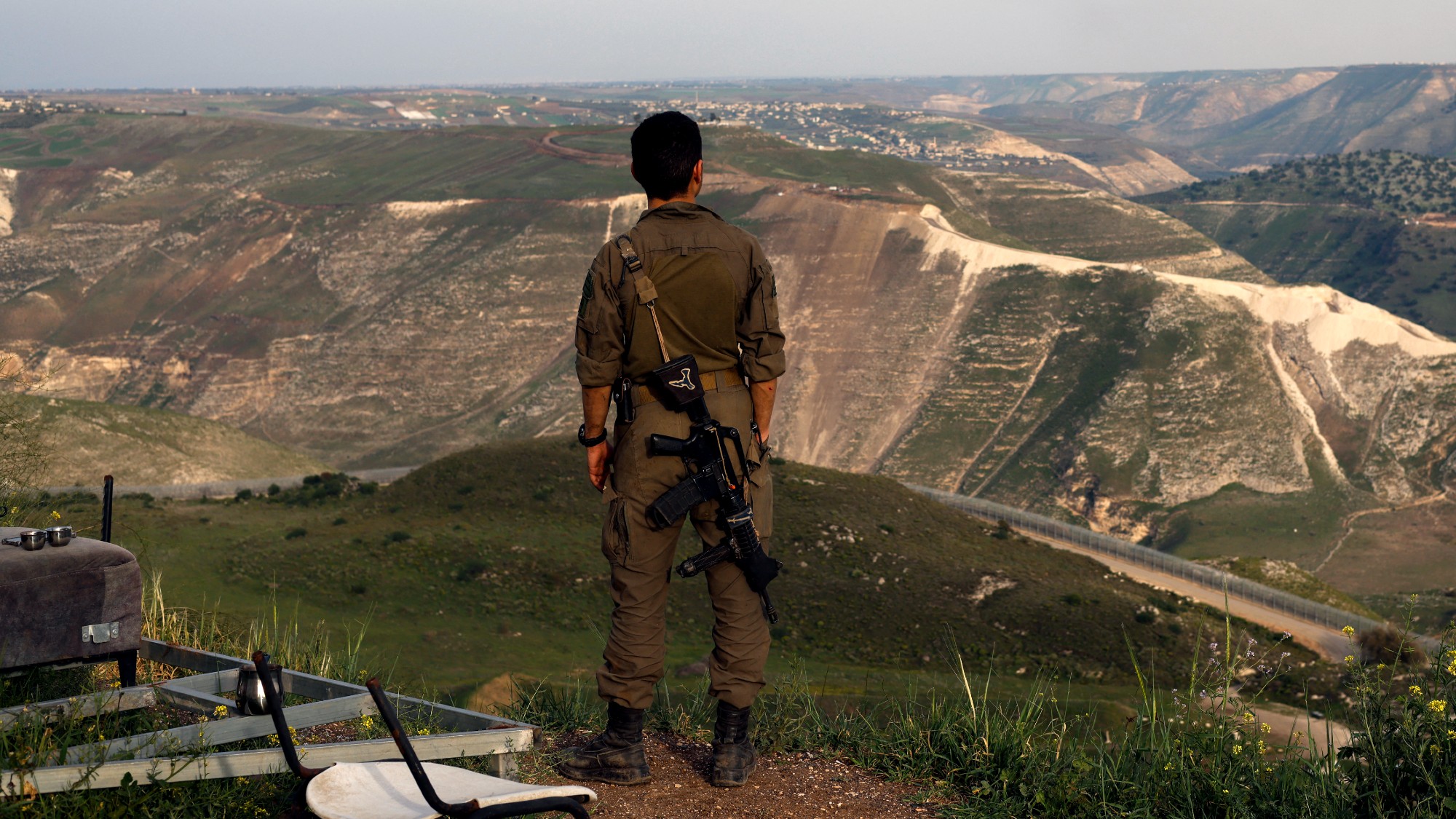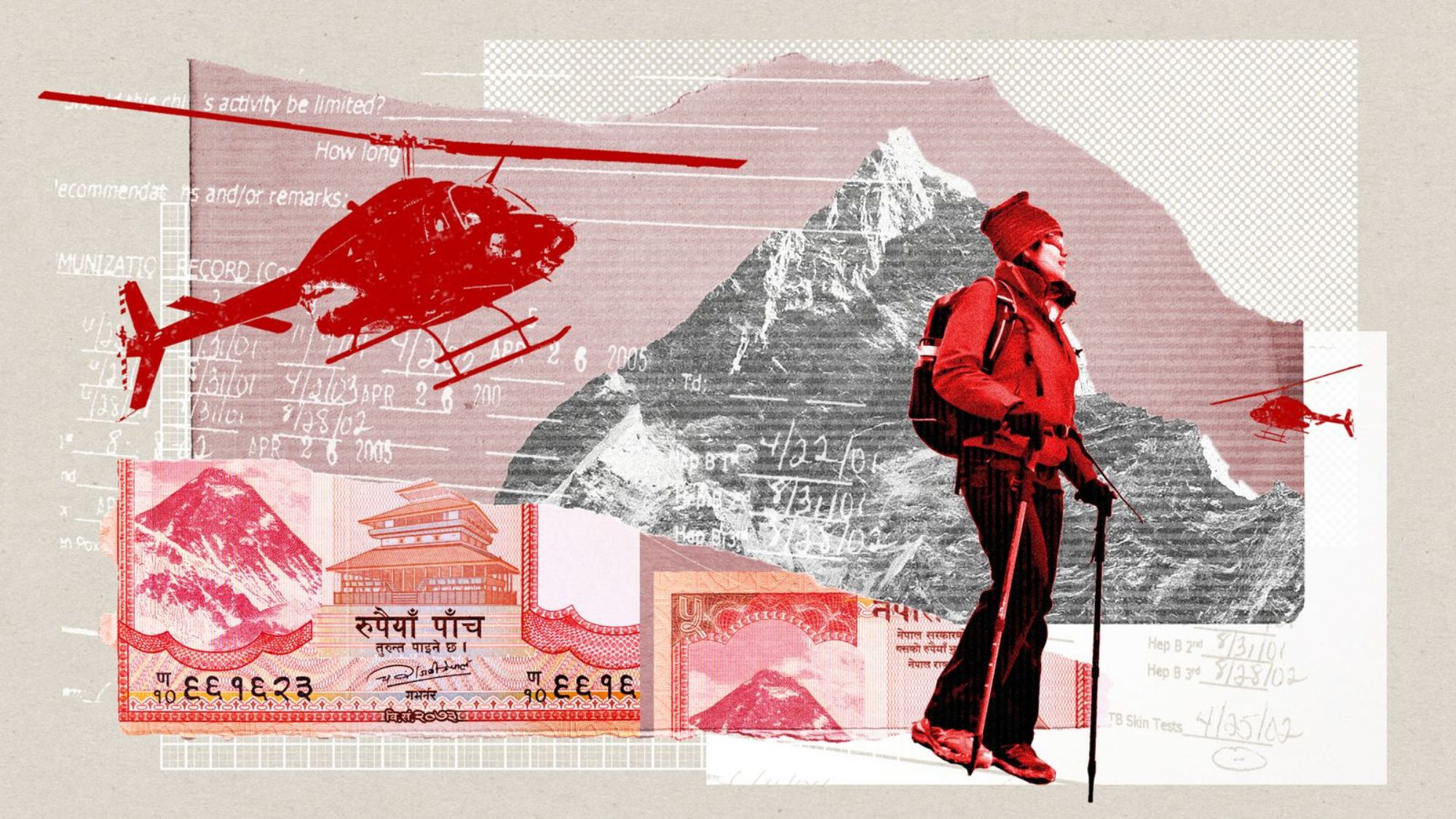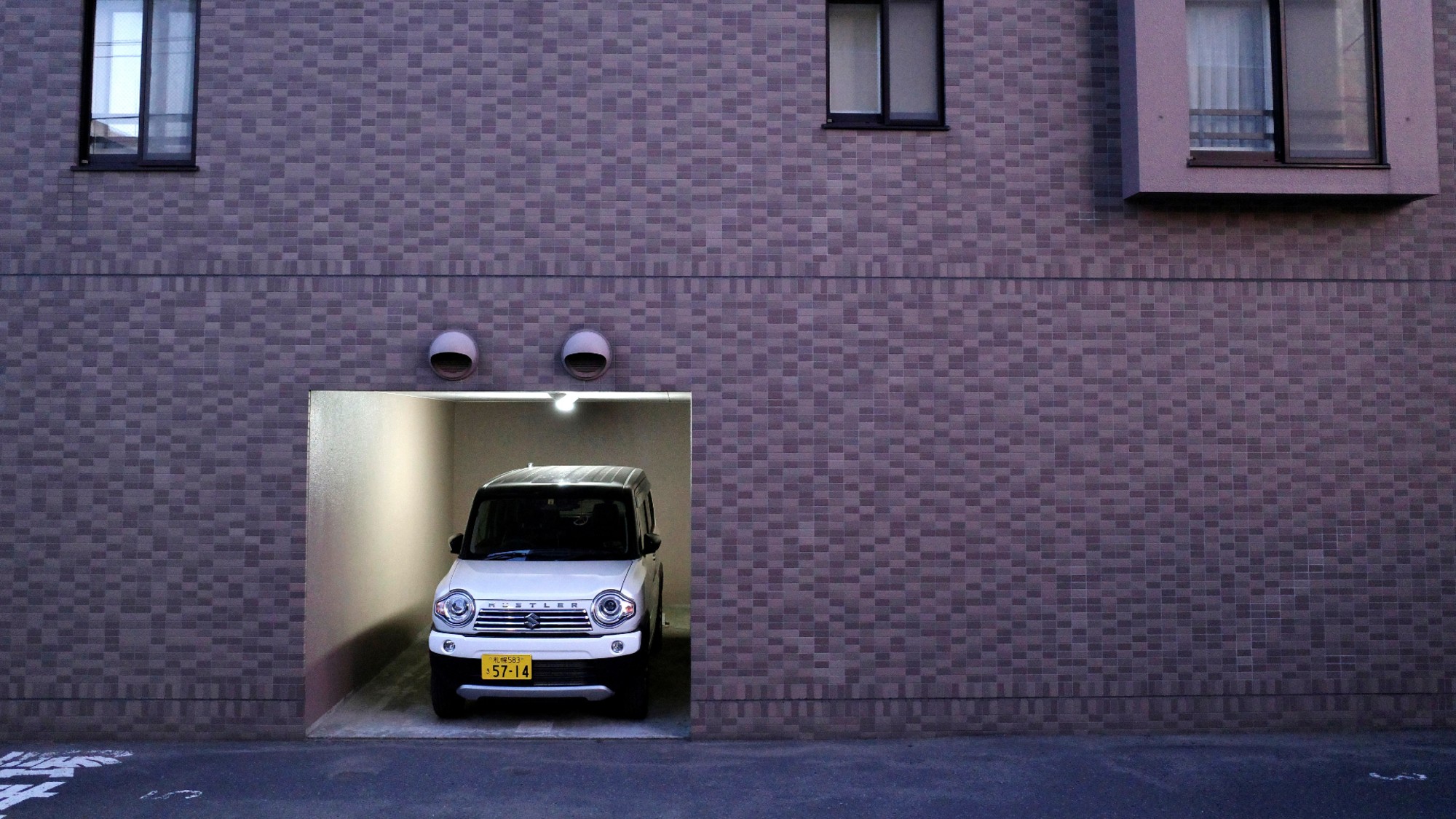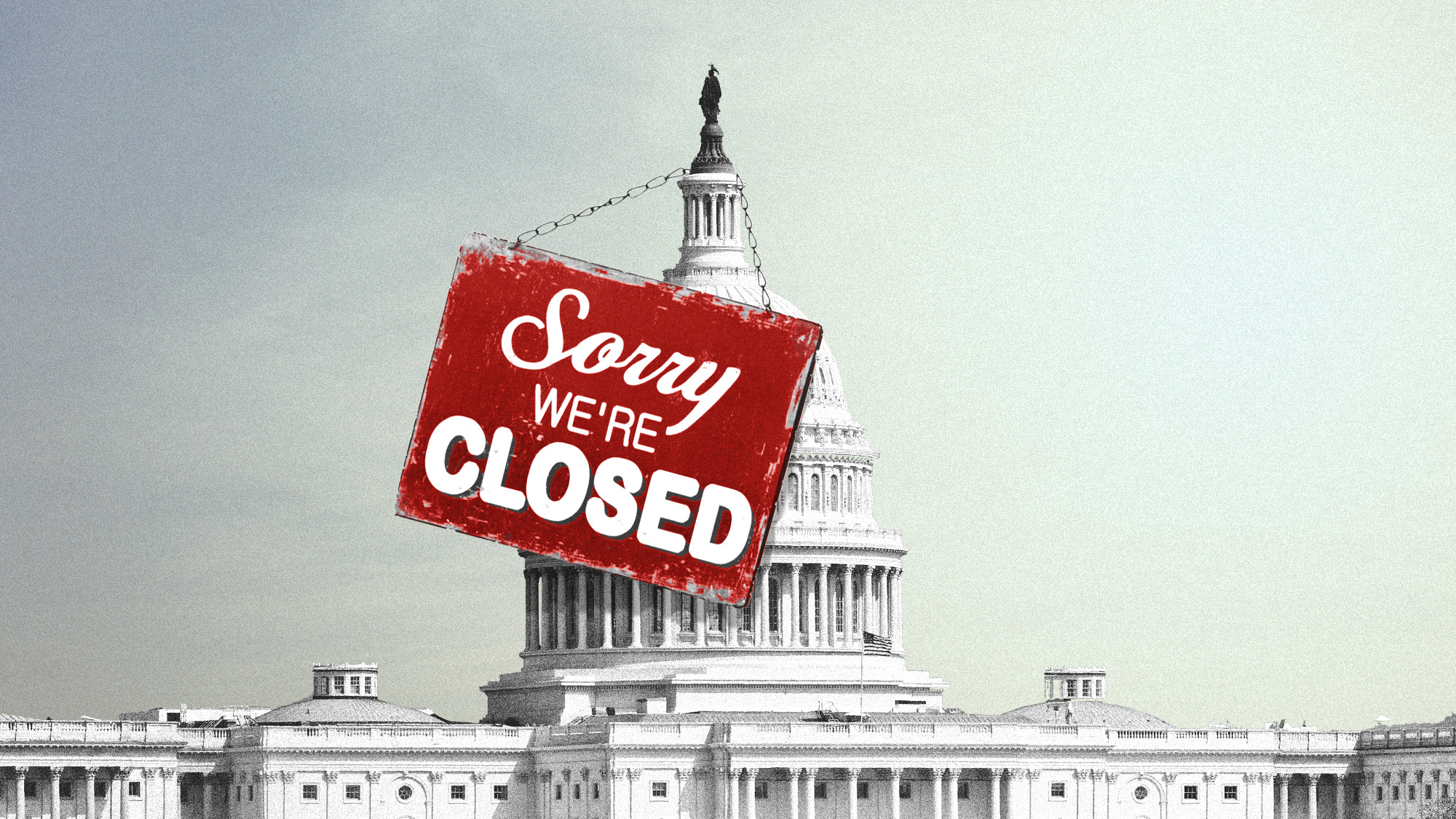The Israeli army's 'tourist hikes' in occupied Golan Heights
'Provocative' twice-daily tours into territory seized from Syria have quickly sold out

A free daily email with the biggest news stories of the day – and the best features from TheWeek.com
You are now subscribed
Your newsletter sign-up was successful
The Israeli army is running hiking tours for civilians in territory it recently seized from Syria.
Tickets for the hikes in the Golan Heights – scheduled twice a day throughout the week of the Jewish Passover festival – sold out almost immediately. The widely criticised venture marks a "provocative intersection of militarised control, tourism expansion and territorial assertion" in one of the "most politically sensitive" regions of the world, said Travel and Tour World.
'Flashpoint for violence'
Groups undertaking the tour are transported to the area in bulletproof buses and "are monitored by armed escorts". The hiking route ventures into a buffer-zone area that was previously "off limits" to both Syria and Israel under a 1974 ceasefire agreement. The Israeli army took advantage of the fall of the Syrian dictator Bashar al-Assad last December to seize the territory.
The Week
Escape your echo chamber. Get the facts behind the news, plus analysis from multiple perspectives.

Sign up for The Week's Free Newsletters
From our morning news briefing to a weekly Good News Newsletter, get the best of The Week delivered directly to your inbox.
From our morning news briefing to a weekly Good News Newsletter, get the best of The Week delivered directly to your inbox.
The tour itinerary includes the Syrian slopes of Mount Hermon, the Ottoman-era Hejaz railway, and Shebaa Farms on an Israeli-occupied strip of Lebanese land traditionally believed to be the site of God's covenant with Abraham – and a "flashpoint for violence" between Israel and Hezbollah for decades, said The Guardian.
The Israeli Defence Force is co-organising the trips with the Golan Regional Council, a religious education centre and environmental groups, as part of a wider initiative called "Returning to a Safer North". In a statement, the IDF said it was "important for us to restore heritage and tourism to the region" and to "tell the story of the battles fought during the war".
Organisers said demand was so high, they hope to offer further tours to Syria after Passover, if the security situation allows it.
'Greater Israel'
The Golan Heights is a rocky plateau in the southwestern corner of Syria, bordering Israel, Lebanon and Jordan.
A free daily email with the biggest news stories of the day – and the best features from TheWeek.com
Israel formally annexed the region in 1981, although the United Nations has refused to recognise the annexation as legitimate. In 2019, however, the US, in Donald Trump's first term, became the only country in the world to recognise Israel's sovereignty in the Golan Heights – a decision that was met with shock and fury, particularly in the Arab world.
The further buffer-zone land grab in December is "seen as a component of the so-called 'Greater Israel' project", said Iranian state broadcaster Press TV. "Greater Israel" typically refers to "the notion of expanding Israel's territory and sovereignty" to what its proponents see as its "historic biblical land", said Middle East Monitor.
The term has "come to mean very different things to different groups", said Adrian Stein in The Times of Israel. "In Israel and the diaspora today", the term is generally understood to mean "extending Israel's sovereignty to the West Bank". But, in more extreme interpretations, it also encompasses the territories in the Sinai Peninsula and the Golan Heights.
Chas Newkey-Burden has been part of The Week Digital team for more than a decade and a journalist for 25 years, starting out on the irreverent football weekly 90 Minutes, before moving to lifestyle magazines Loaded and Attitude. He was a columnist for The Big Issue and landed a world exclusive with David Beckham that became the weekly magazine’s bestselling issue. He now writes regularly for The Guardian, The Telegraph, The Independent, Metro, FourFourTwo and the i new site. He is also the author of a number of non-fiction books.
-
 6 of the world’s most accessible destinations
6 of the world’s most accessible destinationsThe Week Recommends Experience all of Berlin, Singapore and Sydney
-
 How the FCC’s ‘equal time’ rule works
How the FCC’s ‘equal time’ rule worksIn the Spotlight The law is at the heart of the Colbert-CBS conflict
-
 What is the endgame in the DHS shutdown?
What is the endgame in the DHS shutdown?Today’s Big Question Democrats want to rein in ICE’s immigration crackdown
-
 Melania: an ‘ice-cold’ documentary
Melania: an ‘ice-cold’ documentaryTalking Point The film has played to largely empty cinemas, but it does have one fan
-
 Nepal’s fake mountain rescue fraud
Nepal’s fake mountain rescue fraudUnder The Radar Arrests made in alleged $20 million insurance racket
-
 The battle over the Irish language in Northern Ireland
The battle over the Irish language in Northern IrelandUnder the Radar Popularity is soaring across Northern Ireland, but dual-language sign policies agitate division as unionists accuse nationalists of cultural erosion
-
 Could smaller cars bring down vehicle prices?
Could smaller cars bring down vehicle prices?Today’s Big Question Trump seems to think so, but experts aren’t so sure
-
 China’s burgeoning coffee culture
China’s burgeoning coffee cultureUnder The Radar Local chains are thriving as young middle-class consumers turn away from tea
-
 DC tourism has taken a hit
DC tourism has taken a hitUnder the Radar The government shutdown has reduced tourist attractions
-
 Spaniards seeing red over bullfighting
Spaniards seeing red over bullfightingUnder the Radar Shock resignation of top matador is latest blow in culture war over tradition that increasingly divides Spain
-
 How Maga fell out of love with beer
How Maga fell out of love with beerIn The Spotlight Right-wingers in the US have boycotted beverage brands that fell foul of culture war, and now some are going fully sober